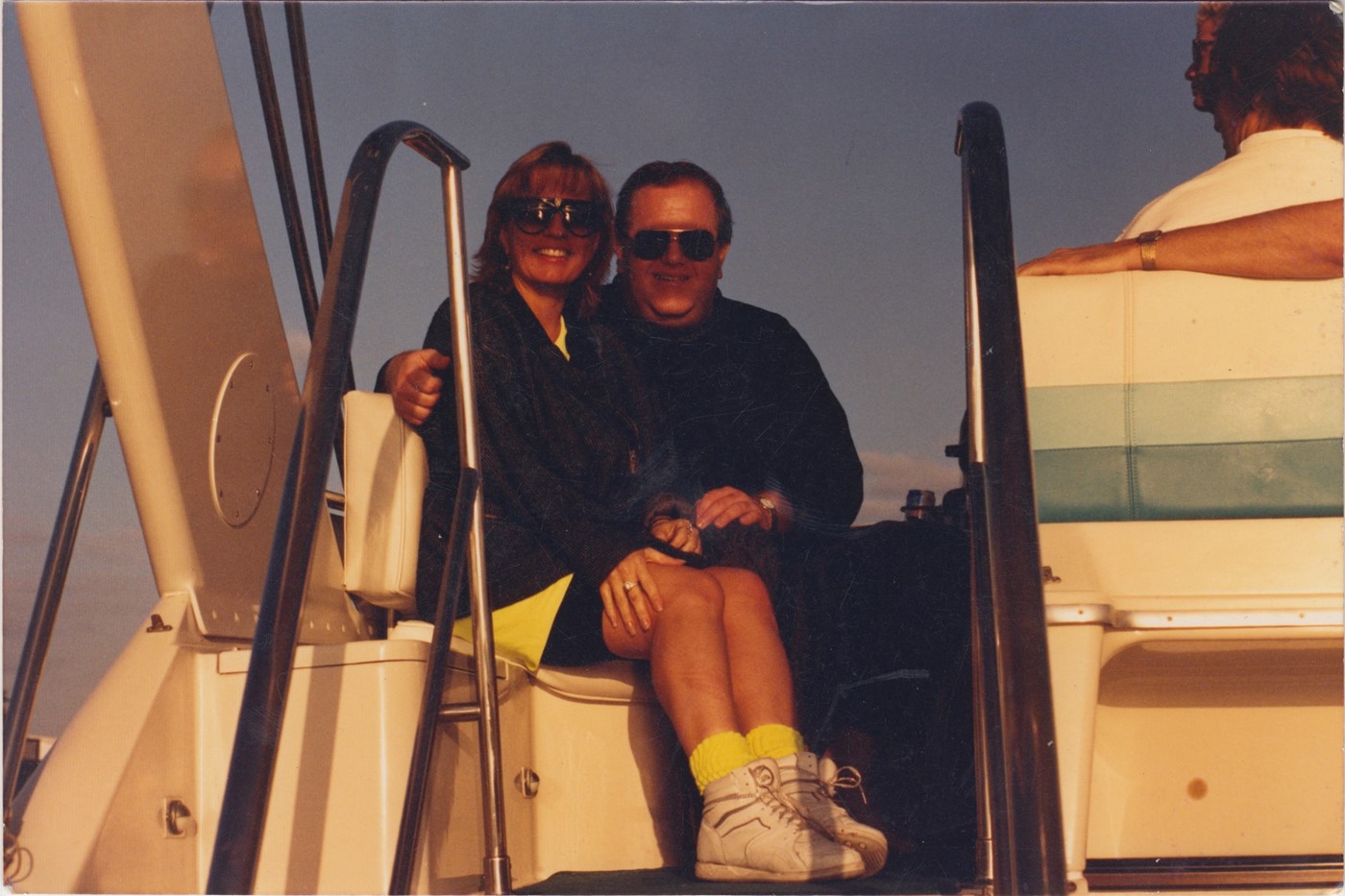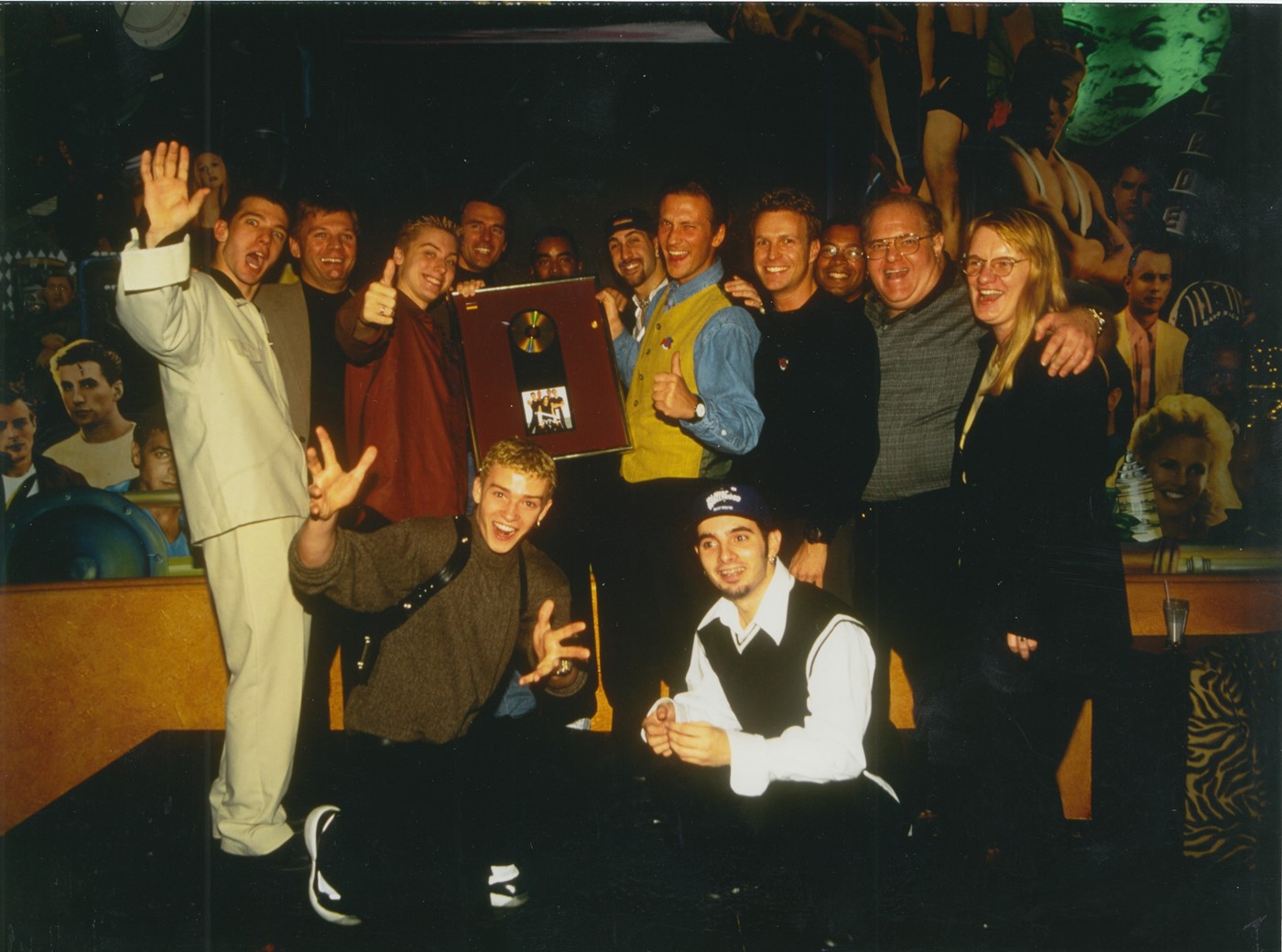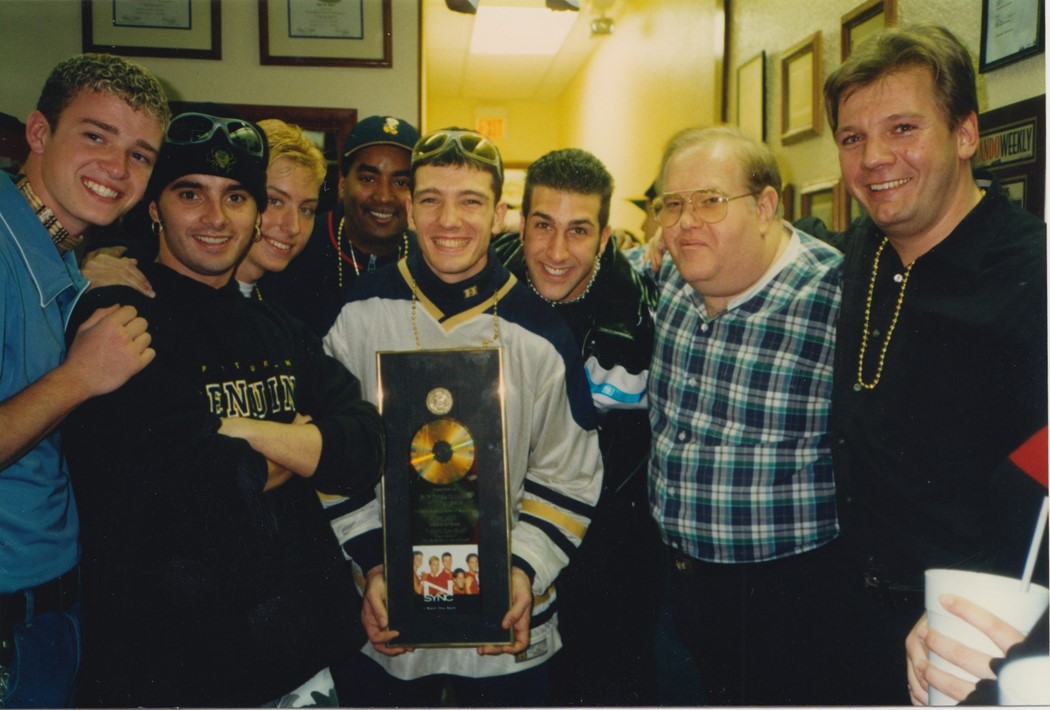The Dark Truth Behind the 1990s’ Biggest Boy Bands
Lou Pearlman was the conman who launched the careers of *NSYNC and the Backstreet Boys. Now, he’s the subject of a shocking new documentary, out tomorrow. Here, the producer of this film and former *NSYNC singer Lance Bass tells us all about it
Ah, the 1990s. Those simpler, pre-Instagram times. Saccharine boy bands with a smidge too much hair gel, flaunting what came to be known in the reality TV playbook as the “total package” (vocal chops + dancing acumen + swoon-worthy faces) routinely graced the covers of tween glossies like Tiger Beat. They churned out an interchangeable assortment of choreographed routines to expertly crafted Max Martin earworms, as 12-year-old girls “screamed their puberty out” on Total Request Live, as former MTV VJ Dave Holmes aptly put it. While you’d be forgiven for assuming that the only things linking up hit machines such as Backstreet Boys, *NSYNC, LFO and O-Town were smooth pipes, chiseled abs and fan armies not to be fucked with, their very existence had in fact been orchestrated by the same man: famed boy-band svengali-slash-notorious conman, Lou Pearlman.
A music industry maven and puzzling fraudster who grew up in Queens, New York dreaming of pop stardom, Pearlman’s only claim to fame was his cousin, the iconic folk-rock singer Art Garfunkel. He squeezed every last drop of legitimacy out of that association, using it as a jumping-off point to fabricate an intricate web of lies, ultimately perpetrating one of the biggest Ponzi schemes in American history. “I was so fascinated by this story of a man who the only thing anyone really knew about him was that he had created two of the biggest boy bands of all time,” director Aaron Kunkel tells me when we speak during the South by Southwest Festival, where his documentary feature The Boy Band Con: The Lou Pearlman Story had its world premiere.

In the same spirit as those jaw-dropping, scam-centred Fyre Fest docs, this sobering and very straightforward YouTube Originals film chronicles how a shady blimp enthusiast came to manufacture the preeminent boy band empire of the 1990s, all the while siphoning away his artists’ hard-earned fortunes and bilking many investors out of their life savings. Pearlman was serving a 25-year prison sentence for his $300-million Ponzi scheme when he died behind bars in August 2016.
While there are already numerous iterations of Pearlman’s salacious story out there – an infamous 2007 Vanity Fair story delving into various claims of sexual impropriety, an investigative book entitled The Hit Charade, and a 2015 Backstreet Boys documentary – Boy Band Con producer (and former *NSYNC-er) Lance Bass clarifies that they set out to tell this story “the right way” and not make “an overly salacious hit piece”.
“It was really important that we got as many sides as possible – anyone who knew Lou from his childhood to the Ponzi scheme victims, to the music side,” he says. “We wanted to give victims a platform to speak their truth. In doing so, you can see the torment and the ill feelings still being digested by some of the cast.” The film features the perspectives of some very recognisable faces – Bass, JC Chasez, and Chris Kirkpatrick (*NSYNC); AJ McLean (Backstreet Boys); Ashley Parker Angel (O-Town), Aaron Carter, and Justin Timberlake’s mother, Lynn Harless, among them – and revisits the singers’ meteoric rise and the widespread swindling revelations that followed.
One of the film’s most shocking scenes recounts how Pearlman presented *NSYNC members and their parents with their first cheques at a fancy Los Angeles steakhouse in 1999, three years into their chart-topping careers. Living on a $35 per diem at the time, the band was expecting massive payouts but only received a measly $10,000 each. In 2006, Timberlake referred to Pearlman’s egregious thieving as “financial rape”, while Backstreet Boy Kevin Richardson called it triple-dipping, “taking one-sixth of everything, a 25% management commission, and he was being recouped all of his expenses”. Having taken advantage of the boys’ youthful naivety and hunger for fame, Bass and Backstreet Boys’ AJ McLean also talk of feeling duped at how the manipulative mastermind pitted his pop acts against each other, with McLean referring to fabricated *NSYNC vs. Backstreet Boys rivalries as “the biggest don’t-shit-where-you-eat scenario”.

By contrast, Bass tells me he refuses to speak in straightforward villain terms about the man who asked that his protégés call him Big Poppa. In part because, had it not been for Pearlman, there would be no *NSYNC. “I’m pretty OK with Lou,” he considers. “I’ve forgiven him, I don’t hold any hard feelings. I look at the silver lining: this experience gave me a great life lesson, because it was just so shocking. There was a lot of nervous laughter within the band at the fact that he could do all these things and lie so well.” Bass regards the film as a cautionary tale for future entertainers and investors alike, a reminder about the prevalence of con artists eager to prey on the vulnerable.
Kunkel adds that while gathering artist testimonials took some trust building, they actually had a much harder time recruiting Ponzi scheme victims. “A lot of people were definitely not interested,” he recalls, “because it was one of the worst if not the worst thing to ever happen in their life. They lost their entire life savings, or their entire retirement, so a lot of people didn’t want to sit down and have to relive all that. They just wanted to put the pieces of their life back together.”
One of the only significant counterpoints to the film’s pile up of condemnations comes courtesy of Aaron Carter, who bursts into tears as he passionately denies many of the accusations leveled at his former manager. For Bass, it’s single-handedly the Boy Band Con moment that most caught him off-guard. “I had never heard about Aaron’s story with Lou, and I know that of all his artists, he was the youngest. Aaron didn’t have the best family support system, so Lou became a father figure. It was very interesting to see what he had to say, and I wasn’t expecting him to defend Lou so passionately. But you can see the torment on his face when he talks about him.”
Speculations abound in the film about what could drive someone to carry out such brazen, high-profile crimes. Was he overcompensating for a lonely childhood, living vicariously through his boy bands, or something altogether more gut-roiling? “You could tell that Lou wanted to be famous,” argues Bass. “He was a larger-than-life character. He loved music as a kid; he was in a band himself but didn’t have the talent to take it any further. I think that’s why he not only made himself financially the sixth member of every group he managed, but he also sought that notoriety.”
Say what you will, it’s beyond question that Pearlman shook up pop culture conventions at the time with his Orlando-based factory farm of radio-ready pop, as well as his reality-TV singing contests – Making The Band, an ABC series that chronicled the formation of O-Town, paved the way for American Idol and its countless future echoes. While the famed schemer arguably got his just punishment behind bars, a more stinging personal comeuppance came with the release of *NSYNC’s breakout album, No Strings Attached – a thinly veiled F-you to their dethroned Big Poppa, which went on to become 2000’s best-selling album. Its lead single Bye Bye Bye offers a direct address to their maker, announcing to the world they were done playing the part of his docile, money-making puppets. Pearlman was never able to assemble another pop group that measured up to these guys.
“Don’t want to make it tough
I just want to tell you that I’ve had enough
It might sound crazy but it ain’t no lie
Baby bye bye bye.”
The Boy Band Con: The Lou Pearlman Story premieres on YouTube April 3, 2019.












